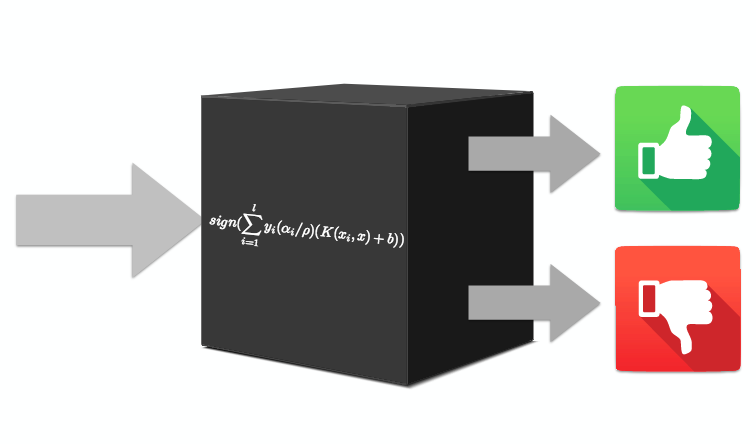Brave New Data World
BLOG: Heidelberg Laureate Forum

“An important point emerged throughout the workshop – said Yusra Ibrahim. PhD student in Information Retrieval and Extraction at the Max Planck Institute for Informatics in Germany, who reported to the plenary – that is: no single group of stakeholders can solve this problem alone: the problem must be addressed by different communities, and there must be a collective solution.”
An agenda for scientists, companies, and society
A combination of technology, individual awareness, market incentives and regulation is necessary to tackle the ethical and societal challenges of Big Data. Scientists’ commitment is crucial for the solution.
“For a teenager it’s almost impossible not to be on Facebook or Twitter. Being out for privacy reasons has a too high social cost for them,” said Alessandro Acquisti in the debate at the end of the Hot Topic session. “At the same time, being on social networks, or simply browsing the Internet, that same teenager is revealing tastes, psychological traits and cognitive biases to third parties, that could use them to influence him or her. We are sharing with others the buttons they have to push to move us in a certain direction,” he pointed out. He imagined a possible advertisement, in which the face of a model would be morphed with that of the teenager’s girlfriend, taken from a Facebook profile, in order to make him buy a product. “We are putting individuals into an impossible to solve dilemma,” he pointed out.
The solutions to this and other challenges of Big Data may come from a combination of three elements, according to all the speakers: technological advances (mainly in encryption); bottom-up approaches (individual awareness and market mechanisms); and top-down approaches (regulation). “The solution is not going to be purely technical, societal, or policy… it’s going to be a combination,” said Peter Ryan.
“There is a lot that can be done from a technical point of view: for example, the creation of personal data stores, software that acts as a safe for digital identities and grant or revoke rights to specific parties. But a lot will depend on adoption,” said Cattuto.
The speakers had a bunch of suggestions for young scientists. “Data can be used for good, for doing something meaningful to society,” said Kristin Tolle. “But don’t do it naïvely: it’s easy to fall in love with new technologies and forget where data come from and how they are collected,” Megan Price added. Peter Ryan called for more commitment from scientists. “If the crypto community came together and threatened to deploy end-to-end crypto, unless privacy is truly granted… well that is too extreme, but it may be a way for scientists to engage. You can do anything with modern crypto: maybe you can even change policy,” he joked.
Market mechanisms may be a powerful tool to address Big Data’s challenges. For example, by putting a price on privacy and creating a market with incentives to promote it. “Economic literature does not have definitive answers on whether market alone is enough to achieve privacy protection,” Acquisti observed. “A 2015, an article in the Harvard Business Review asked a cohort of people across several countries to say how much they would pay to protect different kinds of information: personal, financial, health, preferences, communication… There were dramatically different answers between different cultures,” Cattuto explained. “Much of the implications of sharing or protecting information are long-term, and they affect freedom: maybe we don’t want economists to try to quantify them,” Acquisti pointed out. “Putting a price on privacy may also end up making it something for the rich,” Cattuto added.
Several of the speakers highlighted individual awareness. “I would feel secure to share my data with a hospital if I could see a website that describes their security measures. Creating a critical mass of people requiring this transparency, establishing a cultural norm on this, is one of the many ways to start tackling this problem,” said Megan Price. The EFF is developing a range of technological tools that people can use to protect their data through encryption.
“But pure individual decision making is not enough,” Acquisti said. He thinks that policy approaches are essential. “Industry and academic labs have produced privacy preserving alternatives to whatever transaction: we have privacy protective email, anonymous payments, privacy-enhancing collaborative filtering…. The technology exists, but is not being used at a large scale. How can we use policy to have the technology used?” he asked.
“The policy solution in the US has failed, we have no hope, that’s why we are switching to a technology solution. It would be great to have a policy solution because it would protect everyone, not only the people that are technically savvy enough to install extensions, or adjust settings… But we have to push at whatever pressure point we can find. It’s the best we can do,” Gillula answered.
Acquisti, however, insisted that regulation is essential. “The Internet is making individual people transparent to states and companies, and we don’t have the same transparency the other way round. I would like to reframe the debate. If transparency is good, then I would like to see it also from states and companies,” he said, pointing out that the game is still open in Europe.
“Regulation does not necessarily hamper competitiveness,” Acquisti remarked. His work has shown that in states with more protective privacy regulation people are more keen to share data, which helps technological innovation. Hopefully, this may represent an example of a virtuous cycle for Big Data. “A lot of the challenges that we are facing entail technology, society and norms: no one has the tool to come up with solution alone,” Cattuto concluded.

© HLFF / Flemming – 2015
Report written by the Hot Topic coordinator and moderator Michele Catanzaro, PhD in Physics and freelance science journalist. Some declarations have been edited for clarity and concision.
Readings
On the opportunities of Big Data:
– T. Hay, S. Tansley, and K. Tolle, The Fourth Paradigm, Microsoft Research (2009)
– M. Hilbert, P. López, The world’s technological capacity to store, communicate, and compute information, Science, 332, 60 (2011)
– L. Einav and J. Levin, Economics in the age of big data, Science, 346, 6210 (2014)
– J. Gleick, The Information: A History, a Theory, a Flood, Pantheon Books (2011)
-Viktor Mayer Schönberger, Big Data: A Revolution That Will Transform How We Live, Work, and Think, John Murray (2013)
– M. Price and P. Ball, The Limits of Observation for Understanding Mass Violence,
Canadian Journal of Law and Society, 24, 1 (2015)
-M. Price, A. Gohdes and P. Ball, Documents of war. Understanding the Syrian conflict, Significance, 12, 2 (2015)
On the challenges of Big Data and how to face them:
– D. Helbing, Essays on Big Data, the digital revolution, and participatory market society, Springer (2014)
– Glenn Greenwald, No place to hide, Metropolitan Books (2014)
– Steve Baker, The Numerati, Mariner Books (2008)
– Evgeny Morozov, The Net Delusion: The Dark Side of Internet Freedom, Public Affairs (2011)
– Frank Pasquale The Black Box Society: The Secret Algorithms that Control Money and Information, Harvard University Press (2015)
– B. Preneel, P. Rogaway, M. D. Ryan, and P. Y. A. Ryan eds., Privacy and Security in an Age of Surveillance, Manifesto from Dagstuhl Perspectives Workshop 14401
– H. Abelson et al., Keys Under Doormats: mandating insecurity by requiring government access to all data and communications, DHSpace@MIT (2015)
– D. J. Bernstein, T. Lange, and R. Niederhagen, Dual EC: A Standardized Back Door, Project Bullrun (2015)
– S. Levy, Crypto: How the Code Rebels Beat the Government Saving Privacy in the Digital Age, Penguin Books (2002)
-M. Abadi et al., An Open Letter from US Researchers in Cryptography and Information Security http://masssurveillance.info
– A. Acquisti, C. Taylor, and L. Wagman, The economics of privacy, Journal of Economic Literature (accepted)
– A. Acquisti, L. Brandimarte, G. Loewenstein, Privacy and human behavior in the age of information, Science, 347, 6221 (2015)


